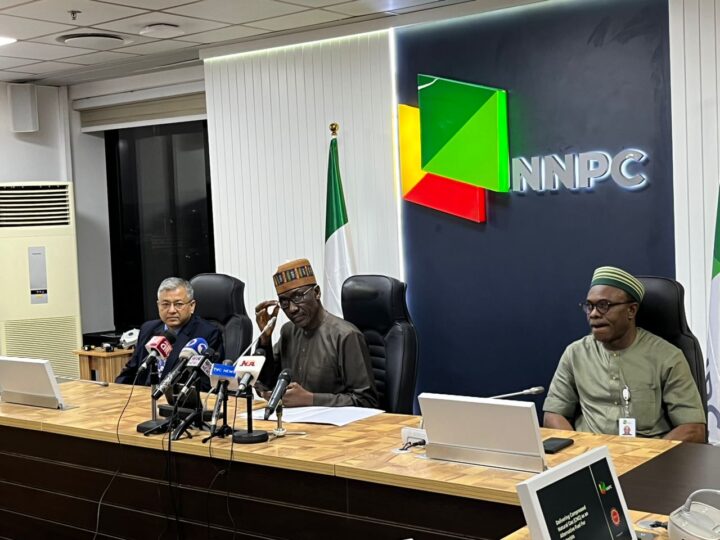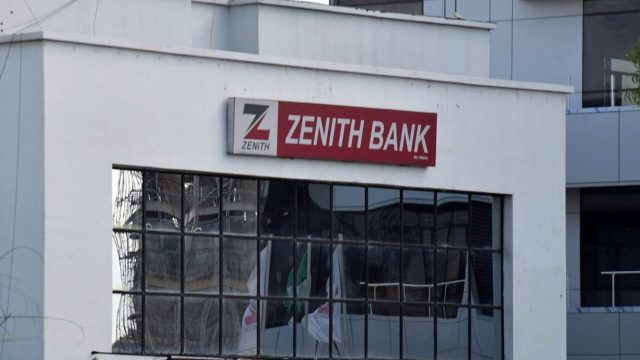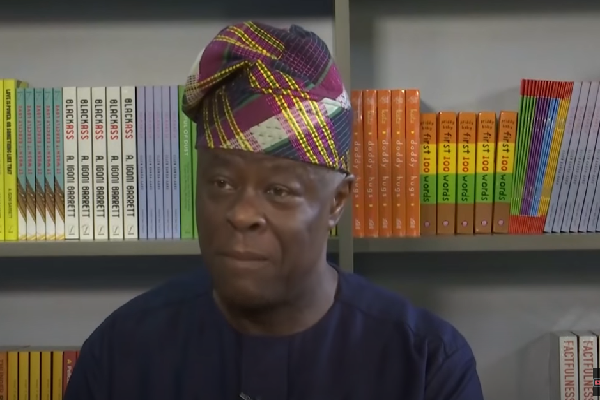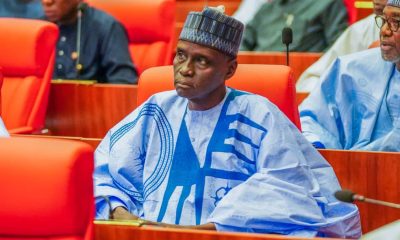Business
How to budget on a N300,000 salary

Earning as high as N300,000 in Nigeria today sure puts you in the top echelon of salary earners.
According to the Nigerian Bureau of Statistics NBS, Nigeria’s minimum wage is N30,000, so a N300,000 salary puts you at least ten times above the national minimum wage.
To put this more into context, we may consider the current civil service pay structure. According to statistics from the Lagos state government Harmonized Public Service Structure HPSS, a grade 14 state worker earns between N325,518 to N457,952.
These are top government officials and earnings anywhere in the region of these salaries definitely puts you way ahead of a lot of civil service and private sector workers.
While these numbers suggest that one can live a lavish lifestyle with N300,000, the reality is far from that.
In today’s Nigeria, N300,000 per month would actually let you live on average and failure to plan or budget properly might plunge you into financial trouble.
A Perth Partners infographic, shows the reality of living on N300,000 per month and the realities are indeed appalling. For instance, after spending conservatively and saving for rent, a worker would be left with no more than N15,000 for miscellaneous expenses.
The most worrisome part of the data is the fact that investing was not factored in. Apparently, a worker earning N300,000 can save, pay for their rent, bills, transportation etc. without putting anything aside for investing and still live from “hand to mouth”.
Little wonder, many workers who have worked for the statutory 35 years in civil service leave with almost no investment on the ground.
It is clear that thriving and surviving on a N300,000 paycheck requires a thorough and well-calculated plan to eventually escape the proverbial “rat race”.
How much is enough? Will a pay raise help my financial situation? Can one eventually kiss financial struggles goodbye?
Unfortunately, a very good percentage of workers experience varying degrees of financial difficulty. CNBC statistics show that about 70% of Americans feel financially stressed.
That is, seven out of ten Americans experience financial problems of one sort or another. The problem can be linked with financial literacy.
According to Credit Donkey, only 32% of US households prepare a budget.
This goes to show how many people have a spending plan as against spending on impulse. Spending without a budget only works when one has substantially more money than their needs and wants and definitely not in a case of scarce resources like a N300,000 salary earner.
Hence, it is not only advisable but indeed necessary for salary earners to not only draft but commit to a budget.
How to budget on a N300,000 salary
- Understand the reality of the situation: Some salary earners are yet to realise the severity of the prevailing economic situation in Nigeria. For example, the NBS economic report for August put inflation figures at 24.08%. The cost of petrol has surged year-on-year by 216%. The reality of the matter is that the purchasing power of the same salary earned a year or two ago has drastically reduced today. Hence, more financial prudence must be applied. Understanding the reality of the situation makes the individual see budgeting as a necessity and not an option.
- Assess your net income: Do you know how much you take home on average every month? For some, these numbers are not steady as allowances and other benefits differ at different times of the year. However, to create an effective budget you need to get a very specific amount you expect every month and work with this number. Assuming ambiguous figures or expecting more than is available may lead to budgeting errors.
- Create a spending limit: Admittedly, it is difficult these days to allocate exact amounts to expenses because the prices of everyday items fluctuate wildly. The other option on the table is setting a cap on your spending. For example, you may cut off unnecessary spending once your expenses cross a certain threshold.
- Cut off impulsive spending: Living off a N300,000 salary invariably means some expenses are off your reach especially if your goal is to avoid financial ruin. Unplanned expenses should be avoided. Only make expenses that have been planned beforehand. Avoid the urge to impress people with your spending or trying to “keep up with the Joneses”
- Cut costs as much as possible: Creating and sticking a budget may be nearly impossible if you do not cut existing costs. For instance, experts recommend that your rent shouldn’t take more than 30% of your salary. However, instead of renting an apartment that takes up 30% of your salary, you may opt for a lower-tier property that costs way less or choose apartments in low-cost areas.
- Seek professional financial help: For some, the solution may require them to see a financial counsellor. The job of the counsellor/ advisor is to help identify financial problems and proffer solutions. A financial advisor may identify bad spending habits or unrealistic savings expectations as the reason for the budgeting difficulty and help you with practicable solutions to help you improve.
In conclusion, living on a N300,000 monthly salary may require you to adopt a prudent financial plan.
The scarce financial resources require tact, discipline and flexibility to stay on top of your finances, invest and have enough savings for the rainy days.
Business
NNPC announces downtime on recruitment portal over unprecedented traffic

The Nigerian National Petroleum Company (NNPC) Limited has announced that its job application portal is currently experiencing downtime due to an ‘unprecedented’ surge in traffic.
On Friday, NNPC announced a recruitment exercise for qualified candidates, with the application period set to close on August 20.
Checks by Vanguard revealed that the agency’s website is displaying server error messages.
In response via X, NNPC stated that their technical team is actively working to resolve the issue.
“Due to unprecedented traffic to the NNPC Ltd. career page from applicants applying for vacancies, the site is currently experiencing slow load times,” the statement reads.
“Our technicians are working diligently to rectify the problem as quickly as possible. Please be assured that the application process deadline remains August 20, 2024.”
NNPC also reassured applicants of a transparent and merit-based recruitment process, urging capable Nigerians to take advantage of this unique opportunity.
Business
Zenith Bank seeks NGX approval to sell 5bn shares through rights issue

Zenith Bank Plc has sought approval from the Nigerian Exchange (NGX) Limited to sell 5.23 billion shares through rights issue to raise N188.37 billion.
According to a statement on Wednesday signed by Godstime Iwenekhai, head of the issuer regulation department at NGX, the qualification date for the rights issue is July 24.
NGX said Zenith Bank applied for the approval through Stanbic IBTC Stockbrokers Limited, the lender’s its stockbroker.
The capital market regulator said Zenith Bank plans to list a rights issue “of Five Billion, Two Hundred and Thirty-Two Million, Seven Hundred and Forty-Eight Thousand, Nine Hundred and Sixty-Four (5,232,748,964) ordinary shares of 50 Kobo each at N36.00 per share on the basis of one (1) new ordinary share for every six (6) existing ordinary shares held as at the close of business on Wednesday, 24 July 2024″.
On April 12, Zenith Bank announced plans to raise an undisclosed amount in the international and Nigerian capital markets.
According to the company, the funds shall be raised through the issuance of ordinary shares, or preference shares, whether by way of private placement, rights issue or both.
The company also said the board would propose increasing its issued share capital — from N15,698,246,893.50 to N31,396,493,787 — at the AGM.
Zenith Bank’s plan to raise capital comes after the Central Bank of Nigeria (CBN), on March 28, directed commercial, merchant and non-interest banks to increase their minimum capital requirements.
CBN adjusted the capital base for commercial banks with international licences to N500 billion, while national and regional financial institutions’ capital bases were pegged at N200 billion and N50 billion, respectively.
With a capital base of N270.75 billion, Zenith Bank needs N229.25 billion to reach the minimum capital requirement of N500 billion.
Business
‘600k households paid’ as FG resumes cash transfer scheme

Wale Edun, the minister of finance, says over 600,000 households have benefited from the direct cash transfer programme of the federal government following the resumption of payments.
Edun spoke on Thursday in Abuja during the half-year review ministerial press briefing, themed, ‘Economic Recovery and Growth: Progress and Prospects 2024’.
On July 18, 2023, President Bola Tinubu ordered an immediate review of the conditional cash transfer scheme — an intervention initiative coordinated by the national social investment programme agency (NSIPA).
The president later suspended all programmes administered by NSIPA for six weeks, as part of a probe of alleged malfeasance in the management of the agency and its programmes.
During a radio interview session in Kaduna, Mohammed Idris, the minister of information and national orientation, disclosed the federal government’s plan to resume the intervention schemes.
Speaking at the press briefing, the minister reiterated Tinubu’s commitment to the welfare of ordinary Nigerians and the government’s efforts to ensure transparency and accountability in its social protection initiatives.
“Following the resumption of payments, over 600,000 households have already received this direct transfer this week,” Edun was quoted as saying in a statement by in a statement on by Mohammed Manga, the ministry’s director of information and public relations.
Edun said the government has made significant strides in its economic reforms, “well on its way to achieving a step-change in the revenues of the government; closely in line with the budget for 2024”.
He also announced the government’s exit from the ways and means borrowing mechanism, highlighting successes of the government’s reforms while citing a projected budget deficit of 4 percent in the 2024 fiscal year.
Edun acknowledged the temporary hardships caused by the reforms but assured that Nigerians would soon benefit from the expected outcomes.
He said the government’s “well-coordinated economic policies are beginning to yield results, evidenced by the deceleration in inflation growth, a rise in foreign investments compared to the same period last year”.
The minister said one of the major priorities of the incumbent government in the immediate term is to reduce food prices and focus on providing all the necessary support to increase local food production, given the impact of high food prices on inflation.
He said efforts are underway to achieve this goal.
The minister said with the outcome of the first half of 2024, “the economy is turning the corner.”
Edun added that with macroeconomic stability, the economy is being well positioned for sustained and inclusive growth that creates jobs, lifts millions out of poverty, and drives domestic and foreign investments that would improve the general wellbeing of the average Nigerian.
-

 Health7 days ago
Health7 days agoWhat to eat and avoid when treating malaria
-

 World1 week ago
World1 week agoComputer scientist claiming invention of Bitcoin faces criminal investigation in UK
-

 Politics1 week ago
Politics1 week agoSenator Monguno replaces Ndume as Senate Chief Whip
-

 Celebrities1 week ago
Celebrities1 week agoMohbad’s wife claims Joseph Aloba is her son’s greatest enemy
-

 Politics1 week ago
Politics1 week agoAppeal court affirms Douye Diri as Bayelsa governor
-

 Politics1 week ago
Politics1 week agoActress Hilda Dokubo suspended as Labour Party’s Rivers chairperson
-

 Entertainment1 week ago
Entertainment1 week agoRema’s ‘HEIS’ sets record for biggest opening week on Spotify Nigeria in 2024
-

 Politics1 week ago
Politics1 week agoOndo LP Governorship candidate, Dr Ayodele Olorunfemi promises ₦120k minimum wage if elected


















